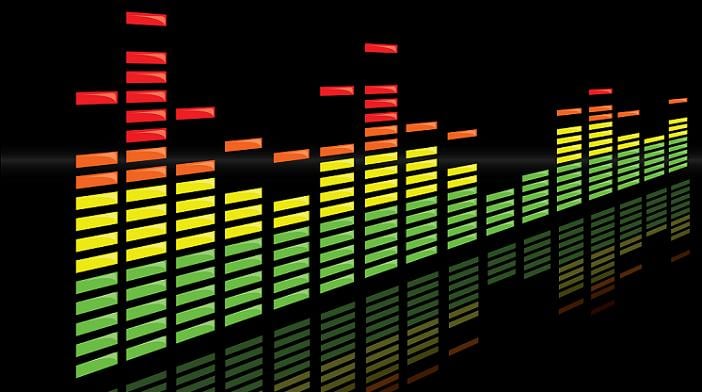 Image via Shutterstock
Image via Shutterstock
It's probably no surprise that breathing is an essential building block for healthy vocal production. It may be a surprise, however, that breathing takes as much practice and fine-tuning as producing a nice, full sound.
As a singer, you're an athlete – plain and simple. You need agility, dexterity, and above all, stamina. Enter breathing. Breathing is the single most important element to sustain notes, color in all those funky riffs, and get through a phrase without a huffing and puffing or turning purple. You’re violet, Violet!
I like to think of the vocal instrument as a perfect coming together of two factories – the breath factory and the voice factory. The breath factory is in gear long before you even open your mouth, sending oxygen to your cells and storing potential energy that can then be dispersed over a chosen amount of time to support an intricate web of melodies.
The name of the game is diaphragmatic breathing. This method of breathing deep into your belly is the most effective and healthy way to chamber the air necessary for supporting singing, while leaving your shoulders, neck, and jaw out of the equation, thus relieving tension. I like to think of diaphragmatic breathing as using your couch body rather than your beach body. Your beach body is sucked in and up appearing as svelte as possible (tickets to the gun show?), while your couch body lets everything hang out with complete abandon as you dip Funions in your belly button.
How to breathe diaphragmatically
Try this: Lean against a counter or the back of a tall chair so that you're making contact just below your ribs. As you breathe in, try to focus the air so your belly expands, lifting you away from the counter. Your shoulders should not rise or fall, and your neck should be as loose as a long-necked goose. Congrats! You just diaphragmatically breathed!
This may be a foreign sensation at first. We generally associate deep breathing with a brisk rise and fall of the shoulders and upper chest – the type of breathing one would commonly associate with running the 100-yard dash. Instead, diaphragmatic breathing is a controlled method that allows the maximum capturing of air.
Once you're accustomed to this new way of breathing, you easily recreate it without leaning on the furniture. I tell my students to picture a deflated inner tube around their waist. As they breathe in, the inner tube inflates, creating a stored cushion of air primed to place a note on and let it soar.
The next step is increasing air capacity. I'm not talking David Blaine proportions, but you need to increase the amount of air taken in on a single breath. The trick to master is not chambering the air to the point that you're about to explode (like a handstand competition in the pool). Your job is to catch a great amount of air without feeling like your eyes might pop out of your head. This can be increased over time with a multitude of breathing exercises.
Here are my two faves:
1. The timed method
- Set a metronome to 70 BPM
- Relax, and breathe out
- On your next breath in, inhale slowly over four counts
- Hold the air for four counts
- Breathe out for four counts
- Rest with no air for four counts
- When four counts gets easy, increase to five, and so on
2. The hissssssssss
All you need is your body and a stopwatch. This exercise is an excellent simulation for holding a sustained note.
- Take a nice, deep breath
- Press start on the watch and slowly release your chambered air on an "s" sound through your teeth. How long can you make it?
- Go back to exercise one for a few days, increase your capacity, and time yourself again. I guarantee that you'll set a new record!
All in all, breathing is simple. It's something we all do in order to survive. Heck, we don't even have to think about it. The skill in singing is using your air to your advantage. With some practice, it'll come as second nature, and your bitchin' high notes will start melting some fan faces.
Next up:
- 3 Dead Simple Ways to Improve Your Singing
- Steal These 5 Tricks to Make Your Vocal Tracks Sound More Modern
- 7 Secrets for Getting Pro-Sounding Vocals on Home Recordings
- 6 Simple Tips for Nailing Your Vocal Recording Session
- Vocalists: How to Avoid Burning Out in the Recording Studio
Jonathan Hack is a Brooklyn resident, musician, writer, and ping pong aficionado. His career in the theatre has spanned acting, music direction, production, carpentry, and more. As a marketer, he has worked with major brands in music and fashion. He is a proud member of AEA and NATS. Follow him on Twitter @writerninja and on Instagram @jonnyhack.







